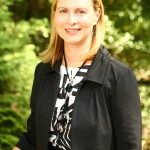Op-Ed Jewish Denominationalism by Rabbi Deborah Reichmann
In light of today’s arguments regarding the ordination of women in the Orthodox movement, of Israeli rabbis not recognizing American Jewish decision-making, of changing policies and perspectives regarding the LGBT community, of these and many more, is Jewish denominationalism a destructive force? Is it a unifying force? Something else?
Clearly, the modern world does not want or work with a “one size fits all” approach to Judaism. This has been true for most of the 20th century if not for the whole of the Jewish diaspora. American Jews today want to embrace their traditions, the culture brought to these shores by their great-grandparents, grandparents and parents, but they are quintessentially American — that is, they are fiercely independent and open to change.
A new Jewish movement has embraced the vast diversity of Jews worldwide and invites them to join together by accepting that there are many paths to being, acting, and worshipping Jewishly. The Union of Jewish Universalist Communities (UJUC) “embraces the diversity of the Jewish world without judgment, conditions or requirements and asserts that all paths to the divine are equally holy.” The denominations that define different approaches to Jewish belief and practice are in this way united in the understanding that all of them are legitimate forms of Judaism.
Does this open the door to a dilution of Judaism, to catastrophic change? The UJUC is not Judaism “lite.” Its main tenets include the primacy of the Jewish creed as espoused in the prayer Sh’ma (Hear O Israel, Adonai is our God, Adonai is One) and the divine nature of the Torah. Where it breaks with the traditional mold is in its nonprescriptive approach to worship and practice. There is an implicit understanding that Judaism has always been an evolving religion, that family tradition and practice are core values, and that the inherent sense of “being Jewish” is worthy of support.

